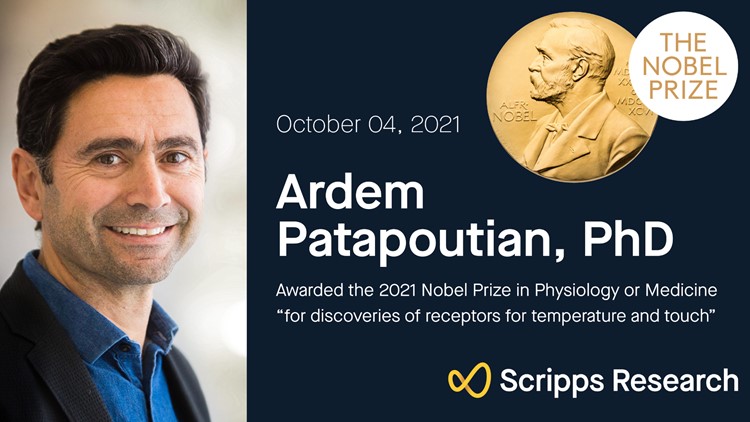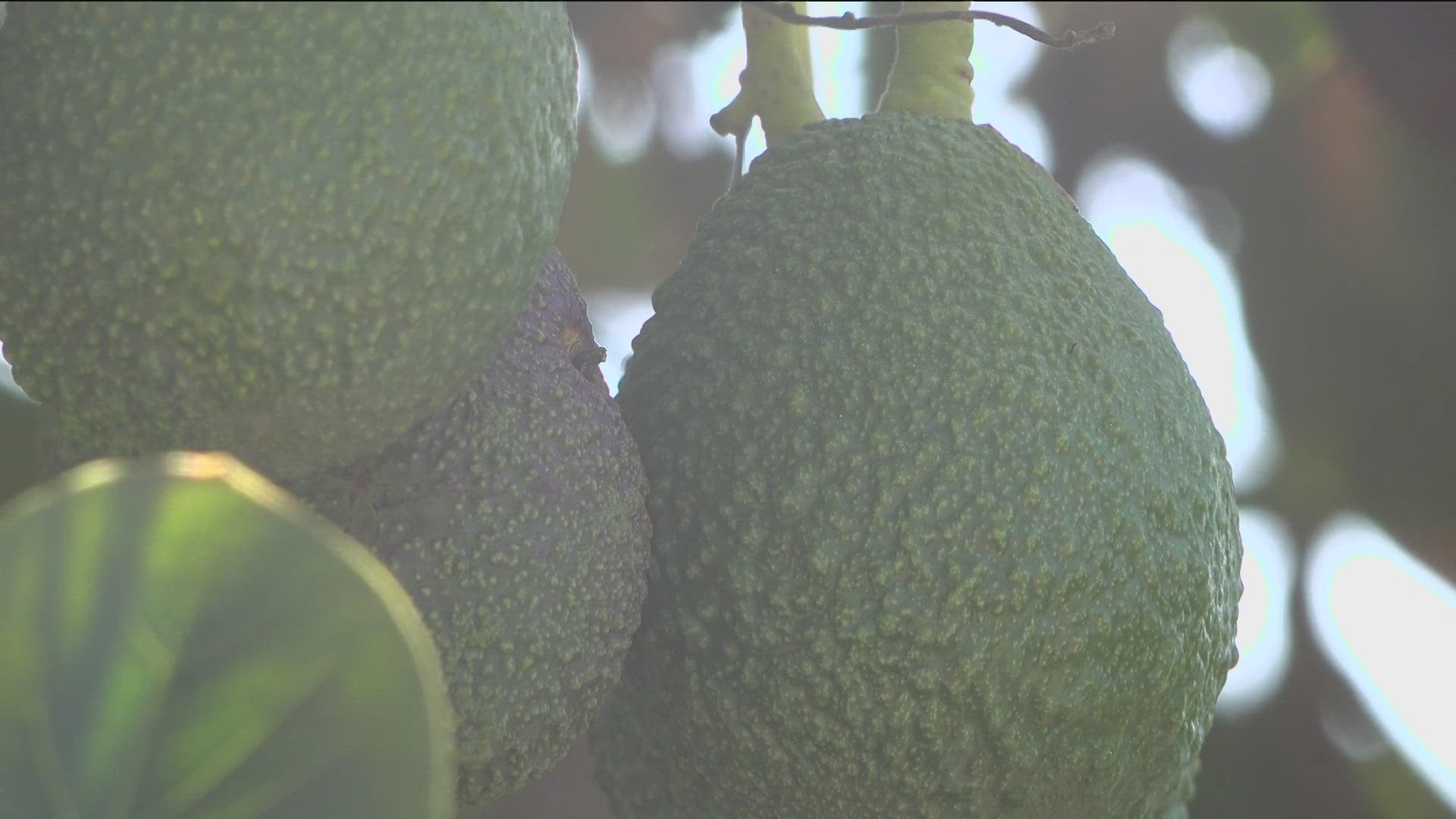SAN DIEGO COUNTY, Calif. — A scientist at Scripps Research in La Jolla Monday jointly received the Nobel Prize in Physiology or Medicine.
Ardem Patapoutian, 53, of Scripps Research in La Jolla was selected as a recipient of the Nobel Prize for his use of "pressure-sensitive cells" to discover a class of sensors that "respond to mechanical stimuli in the skin and internal organs," according to the Nobel Committee.
The Nobel Committee said that these findings include two ion channels that are necessary to human senses and have been proven to regulate other physiological processes -- blood pressure, bladder control, etc.
"The breakthrough by Patapoutian led to a series of papers from his and other groups, demonstrating that the Piezo2 ion channel is essential for the sense of touch," the Nobel committee wrote in a press release around 3 a.m.
"Moreover, Piezo2 was shown to play a key role in the critically important sensing of body position and motion, known as proprioception."
Patapoutian is a professor of neuroscience at Scripps Research, as well as an investigator at the Howard Hughes Medical Institute.
David Julius, 66, was awarded for his findings using capsaicin -- a compound found in chili peppers-- to identify a sensor in nerve-endings that respond to heat. Julius has been a professor at the University of California, San Francisco since 1989.
"Dr. Patapoutian, together with Dr. Julius, unlocked one of the mysteries of life, how do we sense temperature and pressure," said Peter Schultz, President and CEO of Scripps Research. "The Nobel Prize is wonderful recognition of these discoveries. I have followed Dr. Patapoutian's career closely since he first came to Scripps Research and can say that he is an extraordinary scientist, mentor, and colleague and a wonderful person."
WATCH: Press Conference with Ardem Patapoutian, 2021 Recipient of Nobel Prize in Physiology (Oct 4, 2021)



